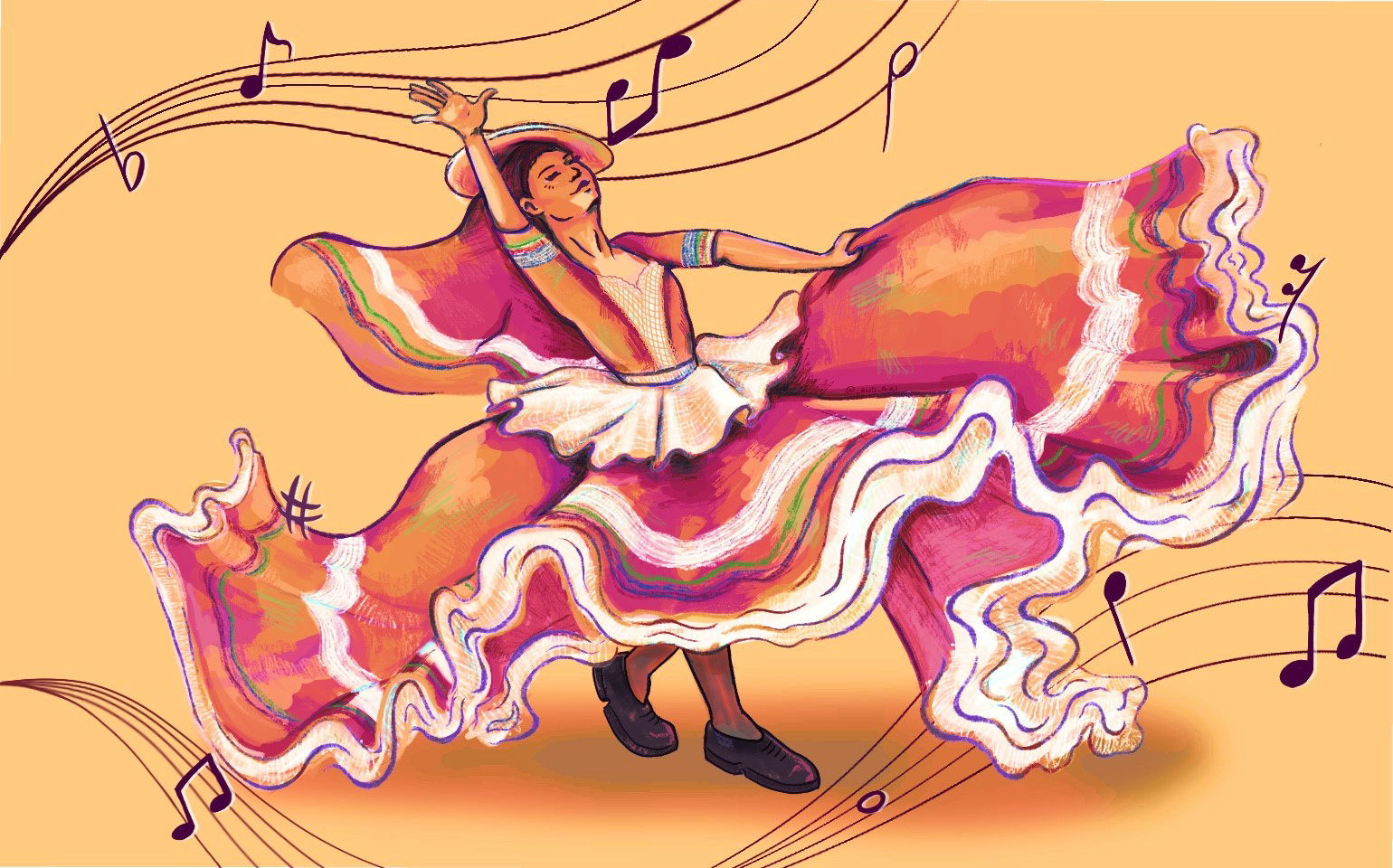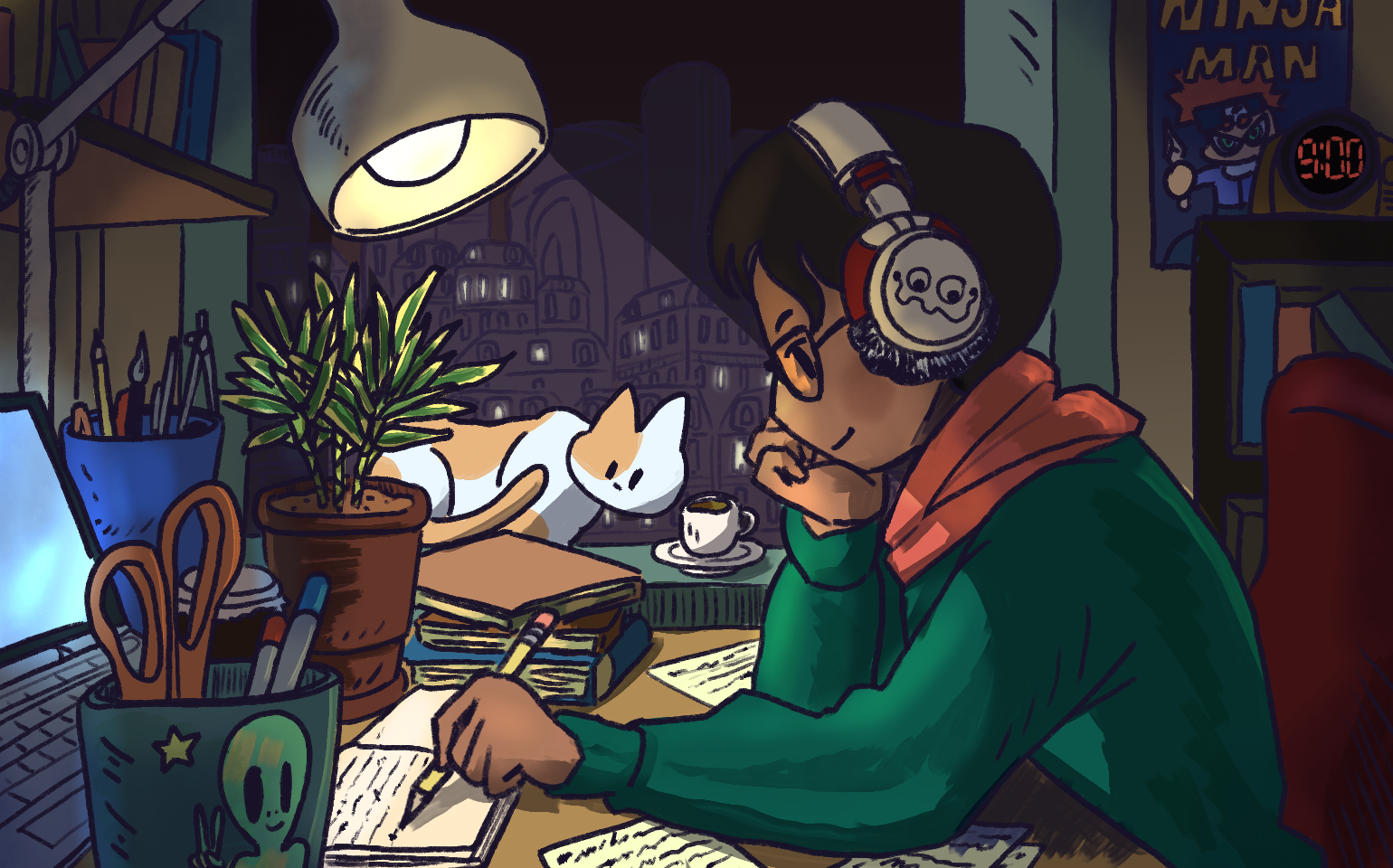Connecting to my Culture: A Latina Perspective
Throughout my childhood, I was immersed in my Latin American culture day and night. I was taught Spanish from the day I was born. I ate traditional Cuban and Peruvian foods that nurtured and comforted my soul. I was told that, even in the womb, I was dancing. To this day I continue to move with a sense of innate rhythm, the skill of dancing passed down to me from my ancestors.
As I grew up, I learned about my rich and important history—especially from Peru—taught to me by my mother and grandparents through traditional stories and teachings passed down from one generation to the next. In my early adolescence, I continued to educate myself on the history of Peru through academic articles and books. The amount of knowledge that the Inca and pre-Inca civilizations of Peru had is astonishing. The Inca developed sophisticated calendars—just like the Mayans and the Aztecs—created stunning textiles, constructed several kinds of ceramics, produced terrace agriculture, and used coca leaves as medicine and in religious ceremonies. The Inca were also master stonemasons. The Incas constructed various kinds of large ceremonial and practical buildings, walls and fortifications using blocks of stones from the mountains which fitted together so precisely no mortar was needed. I learnt about the beauty of my rich Peruvian history, but I also learnt all about colonization and its disastrous effects, including the loss of the indigenous language called Quechua.
Quechua is mostly an oral language. There are only a few written accounts throughout history. Quechua is a special language, with deep-rooted love for the land, gods, and people. Knowing this, when the opportunity came up during my grade 11 history class to learn something from an ancient civilization, I jumped at the chance to connect to my roots. I chose to sing a traditional song in Quechua for my final project. I conducted various kinds of research to learn about the history of Andean music and culture. In December of 2022, I was able to go to Peru for a month-long vacation that was not only for relaxation and family but also for learning. It’s a privilege for me whenever I’m able to go to Peru. I am overcome with feelings of absolute joy and acceptance when I see the mountains and post-colonial clay tiles that adorn all the houses of the city that I stay in, Cusco.
When I’m in Peru I feel like I’m home and free to be who I am without repercussions.
I learned the lyrics to the song, taking the time to properly pronounce each word. Through extensive research, I discovered the song I chose, “Intiq Churin,” represented the Inca’s national anthem. “Intiq Churin” details the Inca’s values and hopes for their civilization at the brink of colonization. This has made me reflect on restoring my Indigenous ancestry and in turn reinventing my identity in a way that represents all sides of me. A huge part of my identity is centered on my ethnicity and how proud I am of where I come from. There are times I feel like an imposter in Canada because of the idea that everyone should conform to the dominant culture. I do not adhere to this standard but because I was born here, and not in Peru, others think that I should, which makes people doubt my authenticity of being Latina. By reclaiming my Peruvian indigenous roots, and learning to sing “Intiq Churin,” I solidified my identity of being a true Latin American and Peruvian. I recover the strength and pride of my ancestry without the feelings of shame that have been perpetuated in society.
Incorporating my culture into my final project gave me so much more than an amazing grade. Speaking the language of my ancestors created this euphoric feeling of understanding. I found a part of myself that had been locked away. Considering that colonizers ripped the Andean culture from Peru it was essential for me to gain it back. It fostered a new sense of belonging and security that I want to keep building for the rest of my life.
Doing this project helped me truly value who I am and where I come from. I have seen many renounce their culture and roots to blend in and create an easier life for themselves, free from discrimination. When people experience discrimination, it can create an internalized self-hate that can be impossible to conquer. I will never forget the teasing, people telling me to reject my roots for Canadian culture. The taunting that I have been subject to by others has hurt me deeply and has been a long journey to overcome the impact of the mean words. It made me reflect on what I thought was important to me. I knew deep down that I loved myself as a Latina and I didn’t want to change myself. Even though my self-esteem was under attack, especially when I was a child, I persevered with the help of my family, who helped me understand that my culture was a beautiful part of myself.
In a world that is divided by our differentiating characteristics and values, culture can be a powerful, uniting force. Not only to mend cultural and social divides but to heal ourselves.
By connecting to our cultures, we can begin to know ourselves better by fostering self-love through traditions such as cooking, singing, dancing, and storytelling. Culture is what makes us human. If we lose a connection to our culture, we lose a very valuable part of ourselves. Learning part of my Peruvian indigenous language through song made me reconnect with another part of my culture that I hadn’t truly known. I’m grateful that my project let me discover a part of my identity, one that I will keep developing. I hope that others can find the importance of their own culture to learn more about themselves and where they come from. Culture is the key to who we are and what we will become.


